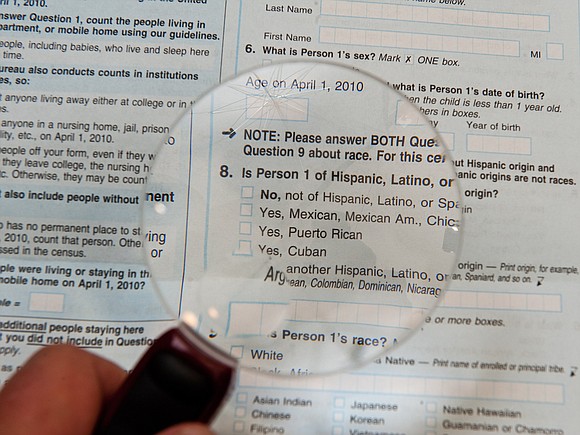Census citizenship question could prompt blank response
CNN/Stylemagazine.com Newswire | 3/28/2018, 6:01 a.m.

By Sara Ganim, CNN
(CNN) -- As community leaders grapple with how to handle a citizenship question on the 2020 Census, some are contemplating the idea of non-citizens leaving it blank while filling out the rest of the form to make sure that minority groups are still counted.
Several leaders who were part of the 2010 Census partner program -- designed to bring in local leaders "to raise awareness of and encourage participation" -- say that even though they oppose a citizenship question, they realize that discounting portions of the population will hurt some communities and are looking for a creative way of avoiding it.
"If they don't feel comfortable, that's their personal decision, but we want to make sure everyone gets counted," said Howard Shih, research and policy director for the Asian American Federation, who was part of the partner program in 2010 and expects to work with the Census again in 2020. "Typically if there is missing information, the person is still counted."
The problem is that avoiding the question may technically be against the law.
Census law says that anyone who "refuses or willfully neglects ... to answer, to the best of his knowledge, any of the questions" could be fined up to $100, and anyone who answers falsely could be fined up to $500.
Politifact reported in 2014 that it's been 50 years since anyone was fined under this statute.
"We're going to tell people to participate in the Census," said Clarissa Martinez de Castro, deputy vice president of UnidosUS. "I think there's still some consideration going on about how to deal with that question."
Typically, groups like these use their good relationships with members of the community that are at a higher risk for avoiding the Census to make sure as many people as possible get counted.
"This means the Census is getting more expensive and less accurate," said William O'Hare, a senior fellow at The Annie E. Casey Foundation, who said that if less people voluntarily respond to the census, then the government will have to pay more to send workers door-to-door to get responses.
O'Hare said he's unsure how he's going to advise people who are nervous about being truthful about their immigration status.
"I don't know, to tell you the truth," he said. "I am taking guidance from others. I am monitoring the Census and will continue to support the outreach efforts, but whether I will personally tell people I'm not sure. I think there are a whole bunch of folks who are considering options."
Other advocates say they will make the argument that avoiding the question, or the Census altogether, will play right into Trump's hands.
"I think there are challenges but we've got a built in message: Donald Trump doesn't want you counted, so make sure you count," said Thomas Saenz, president and general counsel of the Mexican American Legal Defense and Education Fund, known by the acronym MALDEF. "The data is secure. It's critically important to be counted," he said, noting that because the question is about citizenship and not an immigration status, he will try to assure folks that "it can't really be used reliably for enforcement activities."
Earl Fowlkes, president of the Center for Black Equity, said even in 2010, he remembers people being nervous about answering questions, but said he always advised them to take the risk.
"Resources are more important that personal feelings of discomfort," Fowlkes said. "Not counting people translates into communities not receiving funding, and that's equally egregious in a way... It really translates into dollars for services and healthcare."



